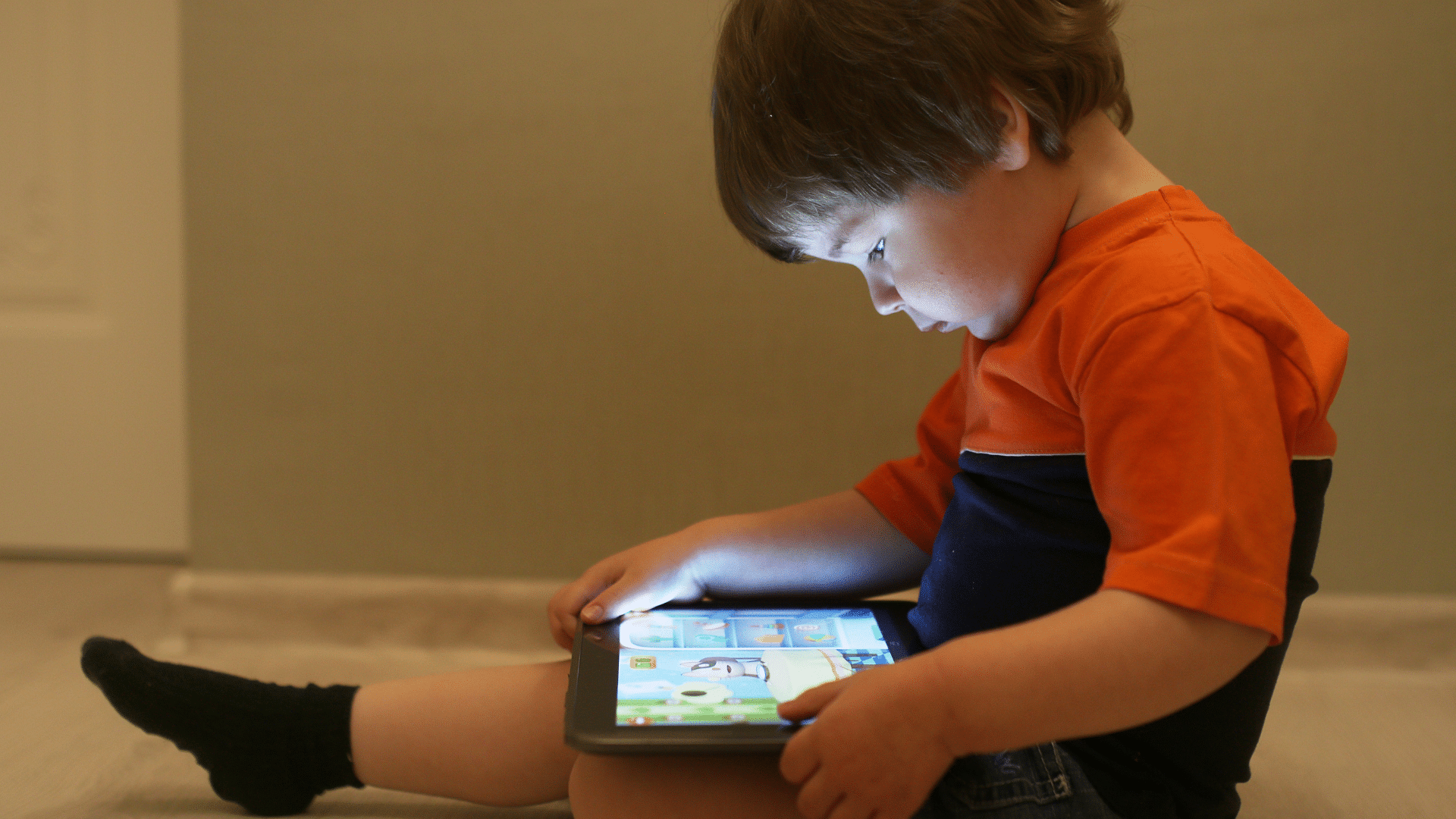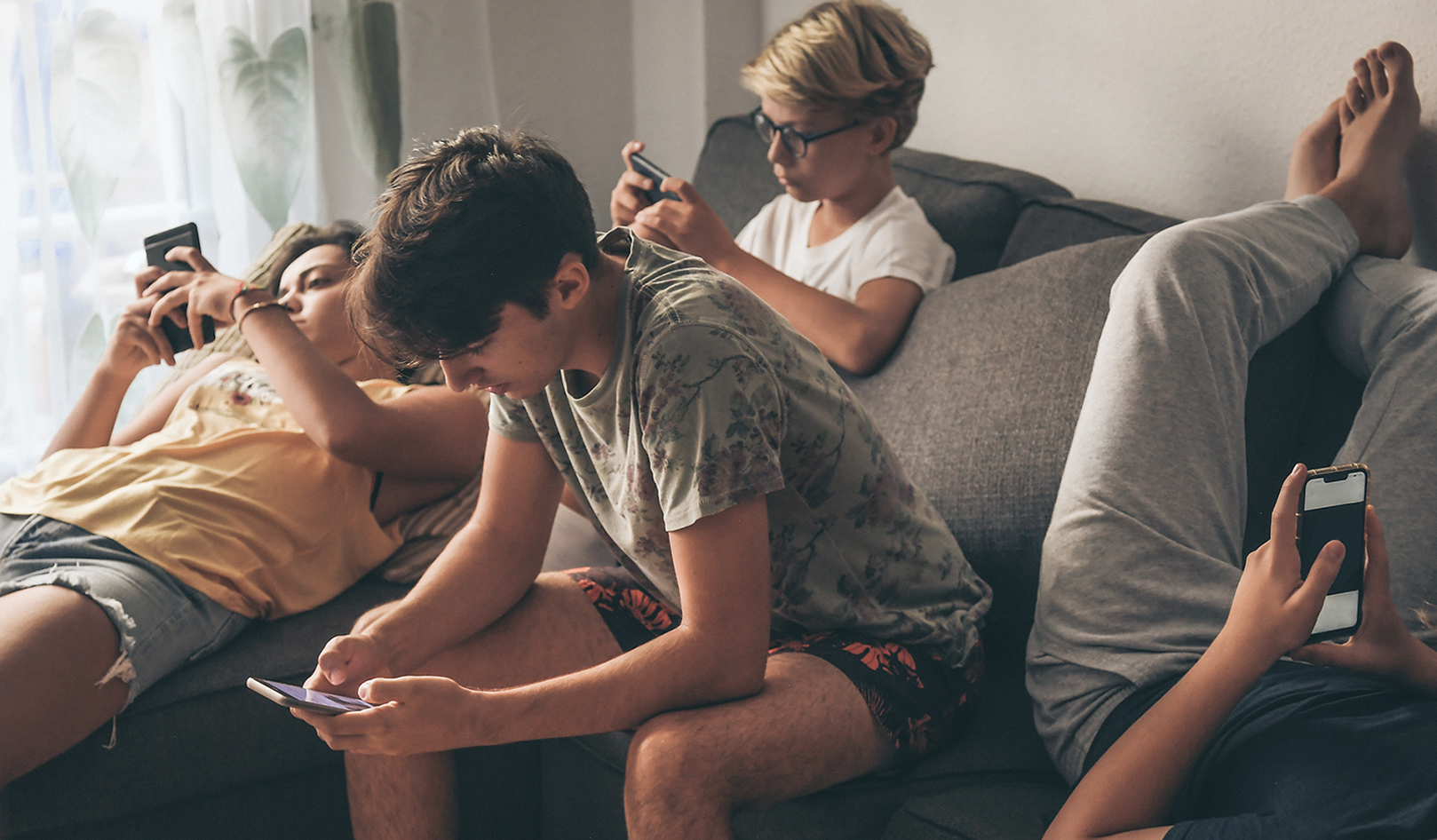From smartphones and social media to televisions and tablet-based games, children today are constantly surrounded by technology. Although it is important for children and teens to develop their technological proficiency, as they will ultimately be using computers throughout their lives, overuse of technology can have harmful health and physical effects. These negative effects of technology on children’s health can be classified in different ranges. We can divide it from increased risk of obesity or this can lead to poor social skills and behavioral problems.
Of course, this does not mean that parents need to ban technology completely, but it is important for parents to be aware of the potential impact of technology on children and reduce the time of children spend in front of screens. They must be sensible in this regard.
How technology affects children.
Technology is everywhere, and although we cannot completely ban technology nor should we, we can set limits to reduce some of the negative effects it can have on our children. Spending too much time in front of a screen can affect your child’s physical health as well as his behavior. Learn more about the physical and mental effects of overuse of goodies (read: technology) and what you can do to help your child.

Childhood obesity and technology
This is a general routine we can see that kids who spend more time screens, have very less outdoor activities. Research has also found that children and teens may consume more fast food while watching television or playing video games. As a result, we are seeing an increase in obesity rates among children and adolescents.
While children will naturally be interested in watching a variety of shows, playing video games, and using app-based technology, it is important for parents to make sure that children are spending time outside and getting enough physical activity. Encourage your children to play outside. If time allows, get your children involved in outdoor exercise. You can play games like hide-and-seek, tag, catch-and-ball, or throw a frisbee in the park. Consider going camping. Your kids will enjoy the extra time they spend with you, and the exercise and time spent outside will help them burn energy and sleep better.
Impacts on children’s social development

Technology has completely changed the way we communicate with each other. Even as adults, we tend to text more than make phone calls. Likewise, we often behave differently on social media than we do in person. These differences are not specific to adults. When children spend too much time on social media, it can lead to low self-esteem. Curated content, such as a digital highlight reel, can cause anxiety among teen viewers as teens compare themselves to their peers. In general, technology use can cause social and behavioral problems in children because it reduces the time children spend interacting with others.
You should monitor your child’s social media activities. You can use parental control features.
In addition to monitoring your child’s screen time, it is also important to make sure he or she participates in social activities. Another great way to limit your child’s screen time and encourage physical activity and social interaction is to get your children involved in a sports league. This way, they will have a structured routine and organized games that allow them not only to exercise but also to socialize with other children their age.
Technology and expanding scope of interest
In the present days, with the help of the internet and YouTube, we can watch our favorite shows without commercials. This thing reduces the patience of children. They want everything instantly.
Electronic gadgets are reducing the concentration of people. They can easily distracted by constant sounds and information. According to a research study in Canada, since the increase in technology use (around 2000) the average attention span has decreased from 12 seconds to eight seconds.
Teaching patience to children is very difficult, but how can we combat the negative effects of this current culture? One way is to limit technology use while children focus on other tasks. Ban smartphone use while working on homework, encourage conversation over dinner, and turn off the TV when kids are reading. Encourage your children to spend some time alone and disconnecting from the outside world. Let children go outside. Encouge them to interact with others. Let them engage in non-screen activities. These activities may be board games, books, and puzzles.
Screen Time Management: How Much Screen Time Is Too Much?
Do you know how much time your kids spend on their devices every day? According to the American Academy of Child and Adolescent Psychiatry (AACAP), teens watch or use screens for up to nine hours per day, and children ages eight to twelve use screens for four to six hours per day, including schoolwork. Since some electronic use is necessary, especially with distance learning, parents should try to limit screen time, be aware of the websites their children are watching, and ensure that children are spending their time watching high-quality educational content.
The Mayo Clinic recommends limiting screen time for children ages 2 to 5 to one hour per day. Although there are no specific time guidelines for each age group, the American Academy of Pediatrics (AAP) recommends that parents of children ages five to 18 set firm limits on technology use.
Collaborate with your child to manage technology use.
Without strict rules, it’s important to evaluate how much screen time you spend, and what activities you allow your child to engage in. Many of our national university students are parents, and when you’re juggling work, university courses and raising children, some technology use outside of school work is definitely necessary. If your kids are spending more time than usual in front of screens because they’re home from school and you’re working and taking care of them, that’s okay, just try to monitor what they’re doing that doesn’t interfere with their school work, health, or behavior. Your children will grow up surrounded by screens and technology. If you establish good habits early, you can counter the negative effects of technology on children. Remember, not all technology is bad.
